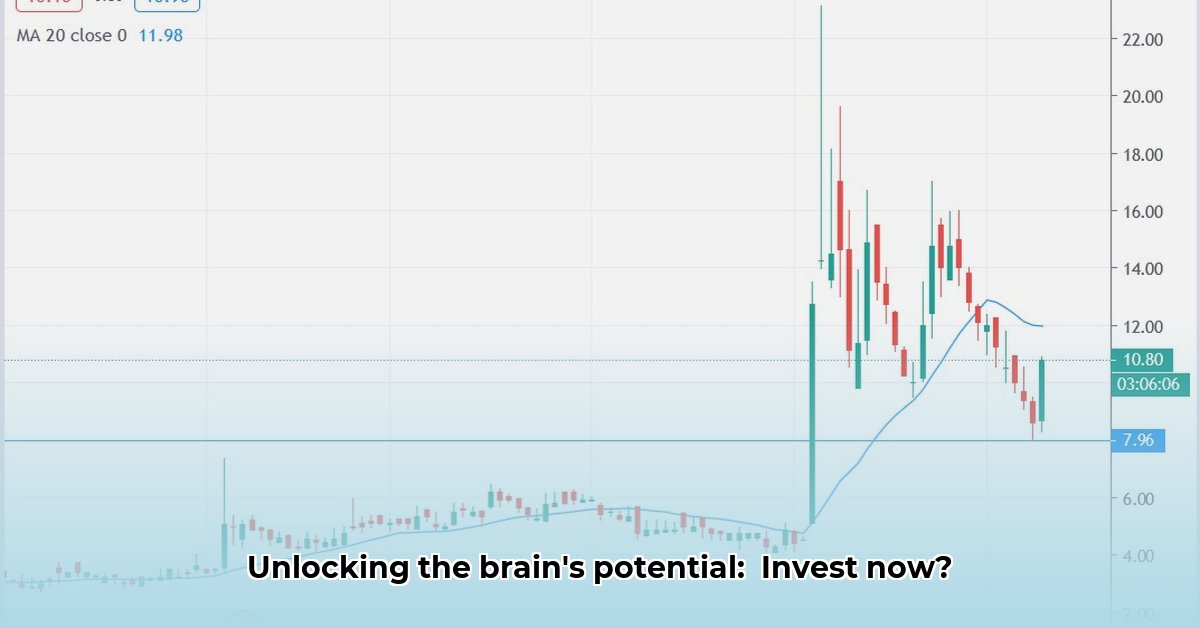
IQAI Ltd.'s Strategic Acquisitions and Market Positioning
IQAI Ltd. is rapidly emerging as a significant player in the neuroimaging sector, fueled by a series of strategic acquisitions and a clear focus on leveraging AI and advanced imaging technologies. The company's acquisition of Imaging Biometrics, a provider of brain-scanning software, and StoneChecker significantly expanded its product portfolio and technological capabilities, solidifying its position within the competitive medical technology landscape. This aggressive acquisition strategy indicates a robust long-term growth plan. But what challenges lie ahead, and what does this mean for investors?
How successfully will IQAI integrate these acquisitions and leverage their combined strengths to achieve market dominance? This is a key question for potential investors.
Financial Backing and Investment Potential
Braveheart Investment Group's substantial 29.51% stake in IQAI signals strong confidence in the company's future prospects. This significant investment provides IQAI with the financial resources necessary to continue its ambitious expansion, further research and development, and potentially pursue additional acquisitions. This financial backing strengthens IQAI’s position, but how will they utilize this capital to maximize their return on investment and demonstrate growth to shareholders? This question is crucial for understanding the company's long-term sustainability.
Given the financial backing, what is IQAI's planned timeline for expansion and market penetration?
Navigating the Regulatory Landscape: FDA Approval and Global Expansion
Securing FDA approval in the United States and equivalent regulatory clearances in other key markets is paramount for IQAI's success. The medical technology industry is heavily regulated, imposing significant challenges for companies seeking to introduce novel diagnostic tools. Successfully navigating this complex regulatory environment is crucial for market access and widespread adoption of IQAI's products. What is IQAI's strategy for navigating these regulatory hurdles and ensuring timely market entry for its innovative neuroimaging solutions? This is a major factor influencing the company's overall trajectory.
Product Portfolio and Competitive Differentiation
IQAI's focus on neuroimaging positions it within a high-growth market with substantial unmet needs. The company's success will depend on its ability to demonstrate the superior performance of its products in real-world clinical settings and highlight their advantages over existing technologies. How effectively will IQAI differentiate its products from competitors, showcasing their unique value proposition and clinical benefits? This is essential for securing market share and achieving sustainable growth.
What specific clinical advantages do IQAI's neuroimaging products offer, and how will these be effectively communicated to healthcare providers and potential investors?
Actionable Insights for Stakeholders
The following table outlines key short-term and long-term goals for various stakeholders involved with IQAI:
| Stakeholder | Short-Term Goals (0-1 year) | Long-Term Goals (3-5 years) |
|---|---|---|
| IQAI Leadership Team | Secure regulatory approvals; Increase sales; Improve existing products | Forge strategic partnerships; Expand into new geographical markets; Further acquisitions |
| Braveheart Investment Group | Closely monitor performance metrics; Evaluate investment ROI | Consider an IPO or a potential acquisition by a larger MedTech company |
| Healthcare Providers | Evaluate IQAI products' clinical utility and benefits; Assess integration into existing workflows | Widespread adoption in clinical practice; Secure favorable reimbursement rates from insurers |
| Regulators (FDA, etc.) | Collaborate effectively to ensure compliance; Address regulatory questions | Streamline approval processes for similar AI-based neuroimaging technologies |
The Future of IQAI: Opportunities and Challenges
IQAI's future is promising, yet fraught with challenges. The company’s strategic acquisitions have laid a strong foundation, but continued success depends on effectively navigating the regulatory landscape, demonstrating superior clinical performance, and managing innovation to maintain a competitive edge.
LSI Keywords: AI in healthcare, neuroimaging software, medical imaging technology, FDA approval process, MedTech investment, healthcare technology, brain scanning, AI diagnostics, portable MRI, algorithmic bias, regulatory compliance, market growth potential, strategic acquisitions, investment opportunities, healthcare innovation, digital health